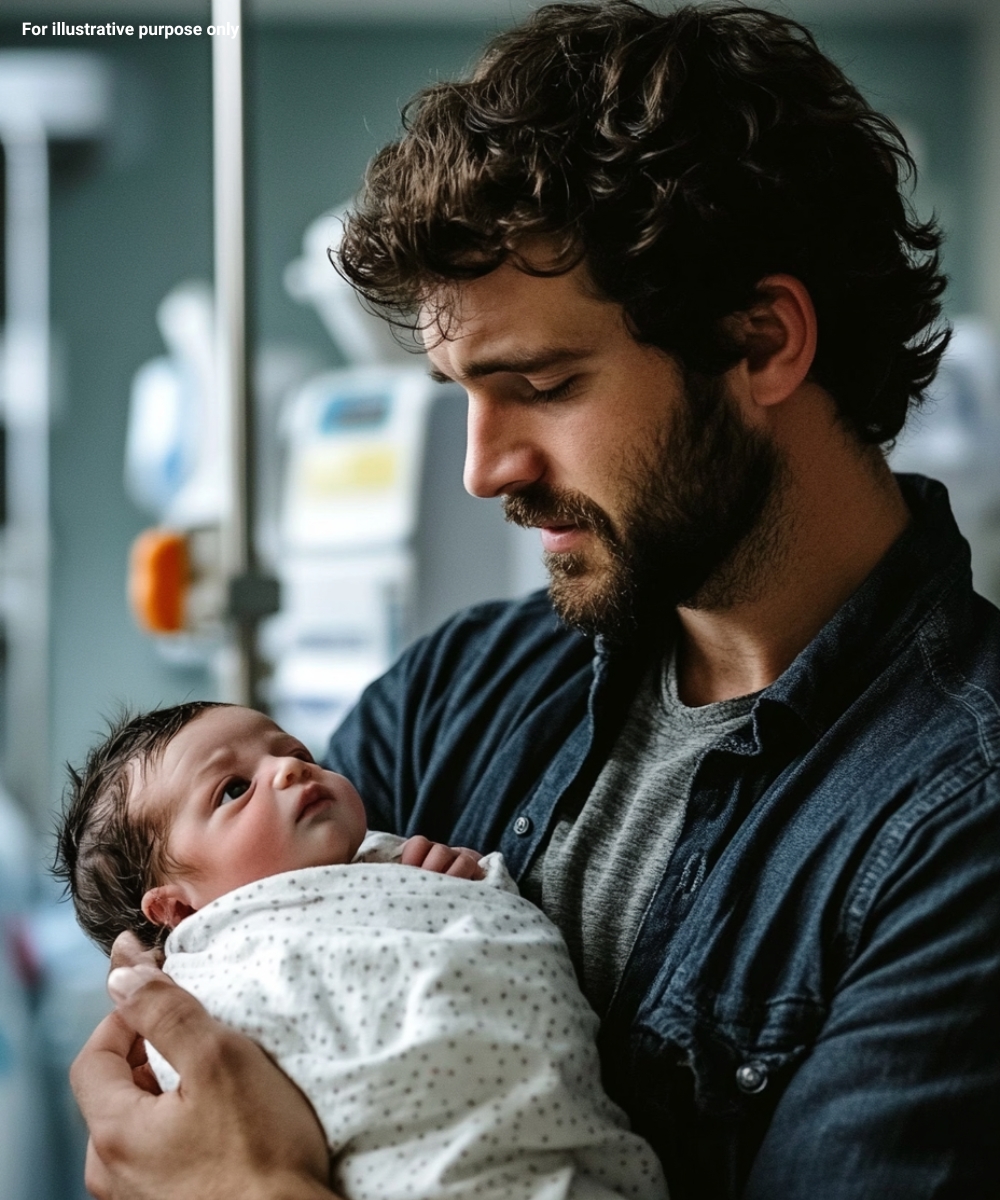“What? Our child is deaf? No, leave him here. I won’t raise a child like that!” Olga’s voice trembled with anger, a tone I had never heard before.
“Olga, listen to yourself! This is our child!” I stared at her, suddenly realizing she seemed like a stranger to me.
The doctor placed a gentle hand on my shoulder, speaking softly, “It’s complete congenital deafness. I’m afraid there’s nothing we can do.” Each word struck me painfully, knowing my son would never hear any of them.
“You don’t understand, Sasha!” Olga insisted. “This will change our lives forever. Special care, endless sacrifices… We’ll never have a normal life!”
I turned my gaze to the tiny bundle lying peacefully, his delicate features calm and unaware of the turmoil surrounding him.
“I’m bringing him home,” I said quietly but firmly.
“What did you say?” she demanded, incredulous.
“I said, I’m taking our son home. Even if it means doing it alone.”
“Are you insane? You’re barely making ends meet working part-time as an electrician. How do you plan to raise a child with special needs?”
“Like any other father would. One day at a time.”
When I awoke the next morning, Olga was gone, leaving behind a terse note: “Sorry. I just can’t handle this.”
Five years of marriage reduced to a brief apology scribbled hastily.
A week later, I brought Denis home.
“Do you really think you can handle this alone?” my neighbor Marina Petrovna asked skeptically.
“I have no idea,” I admitted honestly. “But what other choice do I have?”
The first months felt like endless exhaustion. I learned to multitask—changing diapers with one hand while preparing for my next job assignment.
People in the village murmured, shaking their heads. “Poor guy,” they’d whisper. “Should’ve kept his wife,” others commented. “This isn’t work for a man.”
Yet I soon realized something profound: Denis had no idea anything was wrong. To him, silence was normal. It wasn’t a flaw, just his reality.
Together, we created our own way of communication—a silent language filled with gestures, touches, and expressions. Each day, we learned something new.
I managed financially because my parents had left me their house, which I sold, providing enough to survive on while taking freelance jobs occasionally.
Five years flew by, and Denis grew into a bright, cheerful child with messy brown curls and curious eyes. He became exceptionally observant, noticing details others overlooked.
When it was time to enroll him in school, the principal gently rejected us: “Sasha, our school isn’t equipped for a deaf child. He needs a specialized boarding school.”
“I’ll accompany him to classes, translate everything,” I offered desperately.
“And when will you work?” she replied sadly.
A solution arrived unexpectedly with Anna Sergeevna, a young teacher who recently moved from the city. Our paths crossed at the village shop, where she struggled to find local newspapers.
“We don’t have newspapers,” I joked. “Just Zinaida Petrovna. She delivers the mail and spreads news faster than any paper.”
Anna laughed warmly. “Thank you,” she smiled, extending her hand. “I’m Anna, the new teacher.”
“My son says you have a beautiful smile,” I translated Denis’s gestures.
“You know sign language?” Anna asked in surprise.
“Dad taught me,” Denis replied confidently.
Denis amazed everyone. He learned lip-reading, basic reading, math, and had an extraordinary talent for noticing subtle patterns. One evening, Anna quietly admitted, “I’ve never met a father like you. So devoted and brave.”
Six months later, Anna and I got married quietly, surrounded only by our closest family and friends. Denis proudly carried our rings.
A miracle soon followed. Anna obtained an experimental hearing aid during a visit to the city.
“It won’t fully restore hearing,” she cautioned, “but he might detect louder sounds.”
We cautiously tested the device. Anna rang a small bell near Denis’s ear. His face lit up, eyes widening in astonishment.
“I felt something! What was that?” Denis signed excitedly.
Not long after, Denis called Anna “Mom” for the first time.
One evening, Denis approached me seriously, signing, “Tell me about my real mother.”
I hesitated but knew honesty was essential. “When your mom learned about your deafness, she panicked. She didn’t think she could handle raising you.”
“She wanted to abandon me?” he asked, eyebrows furrowed.
“Yes,” I admitted painfully. “She couldn’t cope.”
“Did you ever try to contact her?”
“No,” I confessed. “She started a new life. I figured she’d find us if she wanted.”
“Do you regret choosing me?” His eyes were intense.
I smiled, touching his shoulder gently. “Not a single second, Denis.”
Anna appeared beside us, signing gracefully, “What’s this serious talk about?”
Denis smiled warmly at her, replying, “Just settling things from the past. My real mother is here.”
Anna rested her head on my shoulder, whispering softly, “He turned out amazing, Sasha.”
“Thanks to you,” I responded quietly.
“No,” she corrected warmly. “Thanks to your courage.”
Together, we sat beneath the evening stars, imperfect but united—a family forged from adversity, love, and determination.
